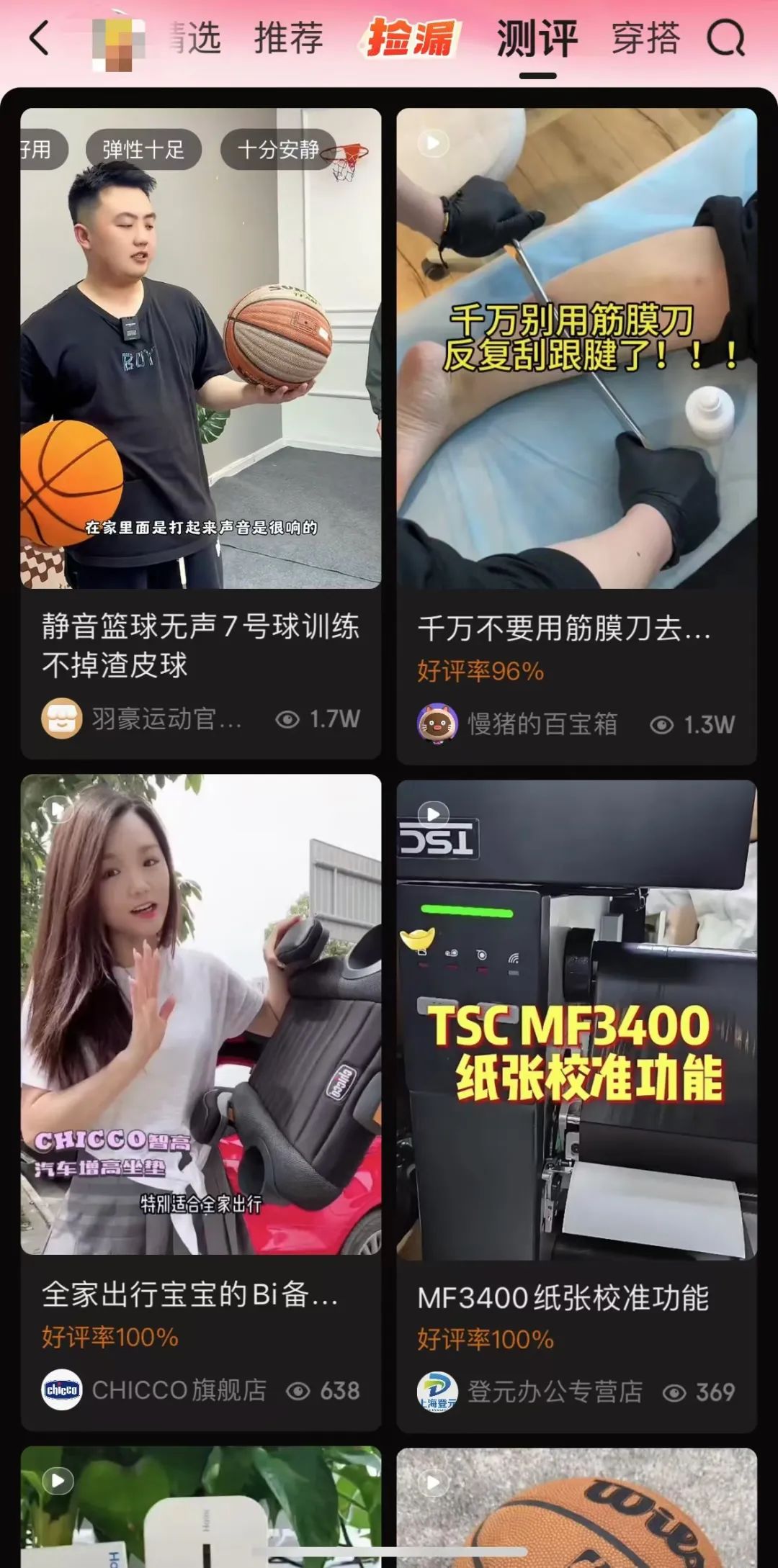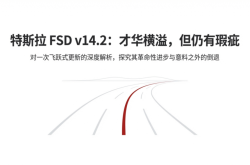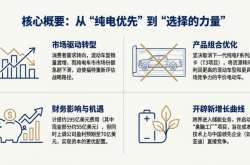Double 11 Enters the 'Retro Cycle'
![]() 10/21 2024
10/21 2024
![]() 522
522
Written by Wu Xianzhi
Edited by Wang Pan
The first principle of the philosophy of struggle is to establish imaginary enemies, and the methodology is to 'throw stones', 'undermine', and 'mix sand'. Among them, the most important action is 'throwing stones'.
'Throwing stones' refers to throwing out a contradiction that evokes empathy, forming a consensus among the public, and thereby implanting one's own beliefs. This year's Double 11, Taobao and JD.com raised the banner of 'anti-internal competition' and threw two 'stones': anti-low prices (to merchants) and criticism of live streaming (to consumers).

On October 12, at Alibaba's Xixi Park C Zone, three group vice presidents from Tmall, Taobao Platform Business Unit, Taobao User Business Unit, and Alimama Business Unit - Jialuo, Chuduan, and Jiawu - expressed the same idea from different angles: Simply low prices are not desirable, and one should look at the quality, service, and value in the relative price range.
Two days later, at JD.com's headquarters building 4 in Yizhuang, the JD.com 11.11 launch conference was held, during which a short film and JD.com procurement and sales program directly pointed fingers at several top live streamers who had previously had issues. JD.com's idea is clearer and more direct than Taobao's - procurement and sales live streaming can replace those top live streamers.
Against the backdrop of increased government subsidies for home appliance trade-ins, barriers being broken down between platforms, and widespread demand for inventory turnover among brands, "cat, dog, and Pinduoduo" all hope to seize more market share through Double 11.
Looking for the Past 'Hammer'
Recently, Photon Planet learned from multiple major brands and express delivery companies that they estimate the median growth rate for the period to be around 25%, which is based on an estimated increase of 34% in the number of promotion days year-on-year.
The head of a major e-commerce brand said privately that without extending the promotion period, it would be difficult to achieve the KPIs set at the beginning of the year. "Double 11 may seem to have a longer period, but it also extends the consumption effect of the promotion."
Therefore, Tmall President Jialuo's earlier response about why this year's Double 11 period was extended had some merit: Consumers need time to organize their shopping carts and resolve doubts when faced with large discounts and high-priced items, and many major brands with a large user base hope to reach users over a longer period against the backdrop of government subsidies and the breaking down of barriers.
Of course, there are also evaluation reasons for the platforms: At the beginning of the year, both Taobao and Douyin shifted to GMV-oriented goals, and extending the promotion period obviously also helps achieve these goals.
Before October 14, the three non-traditional e-commerce platforms Douyin, Kuaishou, and Zhihu entered Double 11 from the 8th to the 12th, and then on the 14th, the three mainstream e-commerce platforms Tmall, JD.com, and Pinduoduo went on sale, and Double 11 entered its full-scale phase.
In addition to the extended period, we have seen that after several reductions in promotion rules, some mechanisms have returned to view. During the first half of the year, Tmall abandoned pre-sales during 618, but returned to two rounds of pre-sales for Double 11.
The reason given by Tmall President Jialuo from Tmall Group is quite convincing. One is due to consumer behavior, and the other is to use pre-sales as a 'strong reminder' to consumers, providing brands with space for user operations.
In terms of consumer behavior, the average price per customer is higher in the second half of the year. For example, in clothing consumption, buying T-shirts in the first half of the year has an average price per customer of less than 100 yuan; in the second half of the year, buying down jackets has an average price per customer of nearly 1,000 yuan. In addition, the concentrated release of Apple and domestic brand flagship phones in the second half of the year has ushered in a replacement cycle for consumer electronics. Due to the increase in the average price per customer and this year's government subsidies for home appliances, consumers take a longer time to make decisions, so pre-sales are needed to shorten decision-making time and lock in budgets.
In the just-concluded first round of pre-sales, top brands with more resources raced ahead, with their product portfolios focused on high-priced, premium items. Consumers who participate in pre-sales for such products are more likely to be converted into members.
Although some platform operation methods from earlier years of Double 11 have not returned, they have not completely disappeared. Due to Taobao's open operation model, they have sunk down to official flagship stores, Tmall stores, Taobao stores, etc., serving as a means of user operations.
It's not just Taobao that is going retro; JD.com has also resurrected "Moonless and Windy Night," created by Liu Qiangdong 20 years ago.
"Moonless and Windy Night" starts with user insights, leveraging "occasional low prices" to sway wallets, with the key being to capture user attention. This requires platforms to have sufficient means to grab users' attention and maintain high usage time.
The most effective means is to increase the supply of information streams represented by images, texts, and short videos, and another is differentiated live streaming formats. Since Song Jian joined JD.com, the platform has begun transforming its content ecosystem. To date, the content adjustments in the "Stroll" section of the JD.com app have been more pronounced, with the launch of "Reviews" and "Outfits" channels during Double 11, corresponding to electronic consumer goods and clothing, respectively.

JD.com has been continuously strengthening the user mindset around procurement and sales live streaming since last year, which is essentially an upgraded version of JD.com's procurement and sales model. It brings procurement and sales to the forefront, facing users directly, and shaping a mindset of "genuine products." From bumping into Li Jiaqi to recently attacking problematic top live streamers, JD.com clearly understands the philosophy of struggle.
Faced with the "retro" offensive from Tmall and JD.com, later-entering platforms mainly respond by strengthening their own strengths.
The best shield in Douyin's e-commerce arsenal is still "content." It is worth mentioning that, stimulated by home appliance subsidies, it will be the most important source of growth for Double 11 this year. Content holds a significant advantage in long-decision categories like home appliances. In the strategies provided by Douyin e-commerce before Double 11, great emphasis is placed on seeding products in advance, followed by increasing investments during the accumulation phase, accelerating during the early bird phase, increasing traffic supply during the opening phase, and increasing frequency during the explosion phase.
Pinduoduo, which is usually quiet during promotions, also launched more significant subsidies during Double 11 to expand its price advantage. An industry insider told Photon Planet that during promotions, Pinduoduo's peak volume does not change much from the overall, "It's difficult to reach five times" the daily order volume after each major promotion sets a new high, which is in stark contrast to other platforms."
No 'Fatigue' in Promotions
Comprehensive e-commerce platforms are looking for the past 'hammer,' such as extending the promotion period once again and even bringing back pre-sales. As the industry returns to old traditions, the view of "promotion fatigue" has also emerged.
Promotion fatigue stems from complex subsidy acquisition methods and flashy branding tactics to leverage brand budgets. If the certainty of subsidies and marketing tools increases, the consumer experience does not actually become more complicated.
Moreover, if promotions do not benefit GMV growth in any way, then Pinduoduo, which has promotions every day, could not have grown step by step - Pinduoduo's activity resource positions are equivalent to normalized promotions. Moreover, the problems with promotions are offset by user experience upgrades.
For example, whether it's government subsidies for home appliances, platform subsidies, or subsidies from brand stores this year, all subsidies are fully automated under price protection and automatic coupon redemption mechanisms, so users do not need to calculate themselves. In terms of fulfillment, except for Taobao canceling special express service providers, all other platforms have special express service providers, and their performance in terms of timeliness will be better than in previous years.
The so-called "special express service providers" refer to platforms choosing a certain express service provider as a fulfillment guarantee during Double 11 peaks, mainly reflected in the price per shipment and timeliness evaluation mechanism. Due to Taobao's phased pre-sale model, compared to past peaks concentrated in a single day, the intensity of fulfillment has plummeted, and there is naturally no need for special express service providers to reserve capacity.

Photon Planet learned that while canceling special express service providers, the peak period used to provide about 8 hours of flexible evaluation for express service providers, but this year, even the flexible timeliness evaluation has been canceled altogether. Taobao implements a "one whip" method in the fulfillment process, using the same evaluation criteria for all express companies, turning flexible fulfillment into rigid fulfillment, which means an enhancement in user experience certainty.
Live streaming e-commerce is another controversial topic.
Top live streaming hosts have frequently encountered problems before Double 11, casting a shadow over live streaming e-commerce, from quality control to high return rates, from difficulty in defining rights and responsibilities to high cost occupancy. However, at the same time, we also see that with the rise of merchant live streaming/brand live streaming and new forms such as procurement and sales live streaming and category-specific live streaming, live streaming e-commerce is moving towards functional segmentation.
Comprehensive live streamers represented by Li Jiaqi and Luo Yonghao have completed supply chain infrastructure, and the combination of quality control capabilities and personal IP has proven to be an effective path. Store/brand live streaming relies on live streaming to connect product portfolios, forming a search-and-recommendation integrated business model with official flagship stores. Vertical live streaming represented by Tmall, JD.com procurement and sales, and Xiaohongshu "buyers" is a third-party-like live streaming model that is easier to accumulate trust capital, improve conversion efficiency, and repurchase rates.
A set of data provided by a courier also shows that even though top live streaming hosts frequently encounter problems, interest-based e-commerce platforms like Douyin are still the fastest-growing e-commerce platforms at present. "In the first quarter, the average daily order volume of Douyin e-commerce was 88 million, and after Double 11, we estimate that the average daily order volume will reach around 120 million orders."
Based on the above data estimates, the increase in the number of orders per ticket for Douyin e-commerce is over 30%. Considering that the average price per customer for Double 11 in the second half of the year is higher than that for 618 in the first half of the year, coupled with a 35-day promotion period, there are theoretically more optimistic expectations for the growth rate of Douyin e-commerce GMV.
The Crux is the Return Rate
The real issue troubling merchants is weakly related to the "throwing stones" of Tmall and JD.com, as it is neither low prices nor live streaming but rather how to address the return rate.
When clothing merchants are generally in a situation where "one product needs to be sold three times," the crux of the problem actually lies in reverse logistics - the cost of reverse logistics is three times that of forward logistics. The platforms' emphasis on anti-internal competition is essentially a manifestation of "talking around the issue."
There are many reasons for merchants to suffer from high return rates, including information gaps, user habits, category characteristics, price per customer, and reverse logistics costs.
There are currently only three effective solutions in the industry. Earlier, when refunds were loosened, operational means accounted for a significant proportion, differentiating product categories for fragile, easily damaged, low-priced items, and some small and medium-sized merchants.
Some platforms are also trying to identify problematic buyers through technical means, thereby reducing merchants' return costs, which also has some effect. In addition, there is also a model where platforms recently partnered with insurance companies and express delivery companies to launch return insurance, but it is not suitable for high-frequency, low-priced products.
Of course, the blame cannot be placed solely on express delivery companies, especially as the express delivery industry is experiencing its "fiercest in the past decade" price war during this year's Double 11.

As Double 11 enters its 16th year, it is difficult to expect continuous new gameplay and formats like in earlier years, similar to how Apple updates its phones every year. In fact, the underlying logic of complaining about Double 11 and complaining about the Apple series has many similarities.
From another perspective, the fact that Apple phones are changing less and less proves that the form of smartphones is approaching "perfect design," and similarly, Double 11 is also moving towards "perfect mechanisms."
If we want to break the status quo, the philosophy of struggle can only provide vague rhetoric about "anti-internal competition," as only innovation can truly jump out of internal competition.






